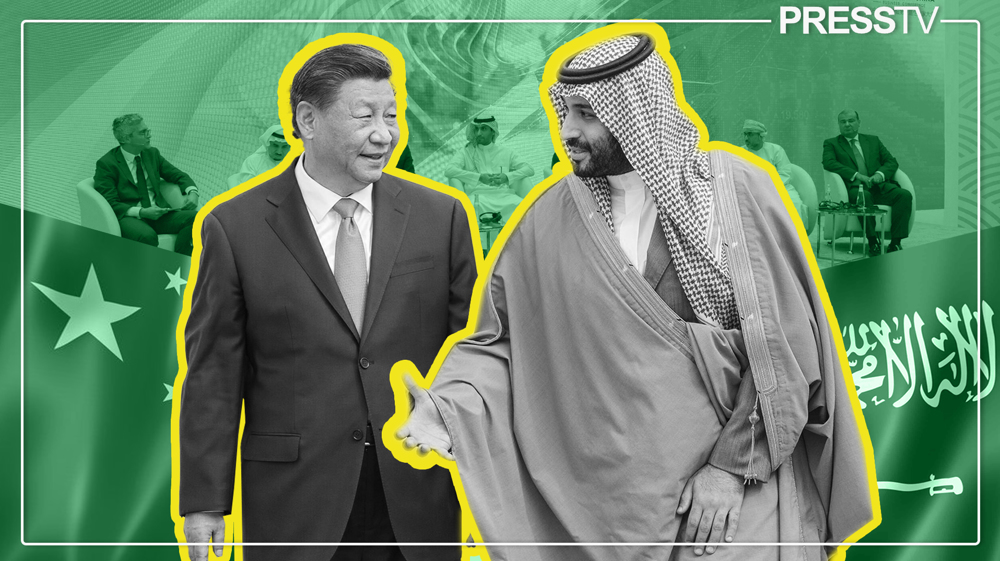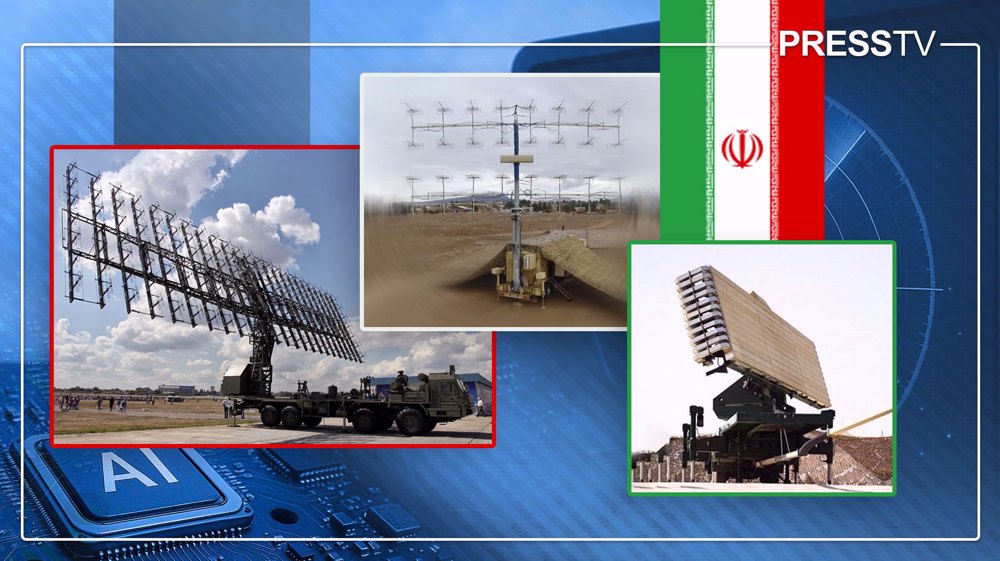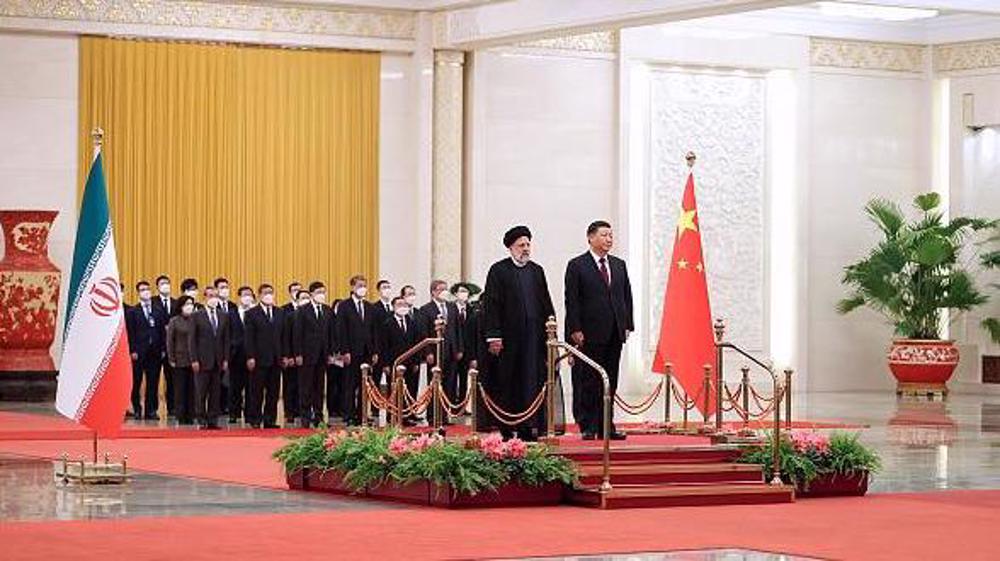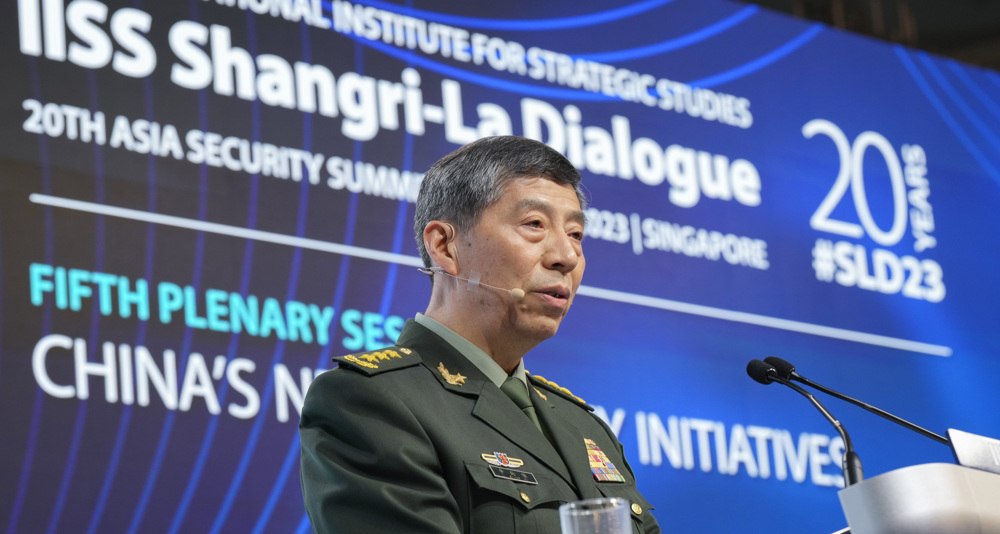China’s growing footprint in Arab world comes amid waning US influence
By Reza Javadi
The senior officials of Saudi Arabia and China earlier this week participated in a two-day Arab-China Business Conference in Riyadh, agreeing to advance ties amid changing regional and global dynamics.
Hosted by Saudi Arabia’s Ministry of Investment and the Ministry of Foreign Affairs, the forum aimed to strengthen trade relations between China and Arab countries and marked another significant step towards the end of American monopoly in the Arab world.
It was described as the largest Arab-Chinese business event with more than 3,000 attendees, including governmental officials, traders, investors, and political and economic experts from China and two dozen Arabian countries, who explored mutually beneficial investment opportunities across key economic sectors.
Held in partnership with the General Secretariat of the League of Arab States, the Chinese Council for the Promotion of International Trade and the Union of Arab Chambers of Commerce, the 10th Arab-China Business Conference saw officials meeting in different plenary sessions, discussing deals.
The first day of the conference witnessed the signing of 30 investment agreements across various sectors worth $10 billion, including a $5.6 billion agreement between the Kingdom’s Investment Ministry and Human Horizons, a Chinese developer of autonomous driving technologies and manufacturer of electric cars under the HiPhi brand, to establish a joint venture for automotive research, development, manufacturing and sales.
“China is the Arab world’s largest trade partner where the total volume of trade exchange between both sides reached $430 billion in 2022,” Saudi Foreign Minister Faisal bin Farhan said at the opening ceremony of the conference.
China-Arab ties in new world order
Chinese business experts said the Arab-China Business Conference will help strengthen economic ties between the world’s second-largest economy and the Arab countries as the world switches from US-dominated unipolar order to multipolar order.
Lin Shunjie, chairman of China International Exhibition Center Group, was quoted as saying that his visit to the Kingdom opened doors of new business opportunities between China and the Arab world, stressing that key strategies should be devised to “encourage Chinese companies to make more investments in the Arab world.”
According to the top Saudi diplomat, China is the largest trading partner for Arab countries, and the volume of trade between the two sides reached over $430bn in 2022, a 31 percent increase from 2021.
Bin Farhan also noted that the theme of the conference "collaborating for prosperity" highlighted the great significance, potential, and common sense that underlies the bilateral investment and trade relations between China and the Arab world.
Rupert Hoogewerf, a researcher who founded the Huron Report, noted that regarding the emergence of new sectors such as renewable energy, fast-growing real estate, and rapid industrialization across the West Asian region, there are huge opportunities for Chinese entrepreneurs.
“There is a lot of ambition to construct new infrastructure here,” he was quoted as saying by Arab News, adding that China has a large number of “young companies that are innovative” and are looking for investment hubs in the region.
Leap in economic cooperation
The summit seeks to "create an unprecedented leap in economic relations" between the Arab world and China, according to Saudi Investment Minister Khalid Al-Falih.
“Trade and cultural ties between Arab countries and the People's Republic of China extend over 2,000 years, but have deepened significantly given the complementary nature of our economies in sectors critical to the global economy,” he was quoted as saying.
“The Arab-China Business Conference will enable public and private sector participants to discuss the future of these collaborations,” he added, reflecting on the significance of the event.
Jessica Wong, the managing partner of eWTP Arabia Capital, an entrepreneurial business company, said the number of Chinese companies is on the rise in Saudi Arabia.
“In the last three and a half years we successfully brought 18 companies into this market. Most of them actually have already achieved quite successful benchmarks here,” Wong said on the sidelines of the conference.
Nicolas Aguzin, CEO of Hong Kong Exchanges and Clearing Ltd, said the business event in Riyadh will help bridge the gap between China and the Arab world and enhance economic cooperation.
“The [ongoing economic & political] transformation in the Middle East and Saudi Arabia, in particular, is astonishing, specifically in the last three, four years. We want to make sure the world knows this and understands this,” he asserted.
This year’s conference focused on several key sectors ranging from construction, logistics, financing, manufacturing, mining, minerals and petrochemicals to mutual shared interests such as tourism, entrepreneurship, e-sports and Saudi Arabia’s recently launched Special Economic Zones (SEZs).
China’s gain, America’s loss
On the sidelines of the event, Saudi’s Al-Falih announced his country’s preparedness to serve as China’s gateway to the Arab world as the world’s second-largest economy seeks to elevate trade ties with the region.
Reciprocally, China is in urgent need of energy and resources from Arabian countries in order to continue its economic development. According to official Chinese customs data, China’s crude oil imports from top supplier Saudi Arabia soared 38 percent in April from a year earlier.
These developments, according to experts, have assumed greater significance as the Arab world, which has traditionally served as the bastion of Western powers, is finally coming out of the shadow.
“China’s increases footprints in Arab countries come amid waning American influence in the region and the transition in the world order, which holds a lot of promise for the region and the world,” Hamid Moradi, a regional affairs analyst, told the Press TV website.
He referred to the role played by China in facilitating reconciliation between Iran and Saudi Arabia as proof that China has “shattered the theory of US dominance in the Arab world”.
An article published by the Wilson Center last week pointed to China’s “growing presence in Arab hearts and minds”, saying many Arabs today see China “as a friend”.
It cited a survey from January that said that included 23,000 interviews from respondents in Arab countries and concluded that “China remains more popular than the US”.
“America is history as far as the Arab world is concerned. China has replaced it,” said Moradi.
Trump denies rift with top officer over potential Iran aggression
VIDEO | Gaza bakery supports displaced families ahead of Ramadan Iftar
France blocks US ambassador from ministerial meetings after summons no-show
Around 20 govts. warn Israel secretly annexing West Bank
Iran pursuing broader cooperation with African nations: Pezeshkian
Israeli minister threatens to seize entire Gaza if Hamas refuses to disarm
VIDEO | Gaza teacher starts ‘Little Wings’ initiative to bring joy to kids
Spanish FM urges firmer EU stance on Gaza crisis, West Bank settlement expansion














 This makes it easy to access the Press TV website
This makes it easy to access the Press TV website